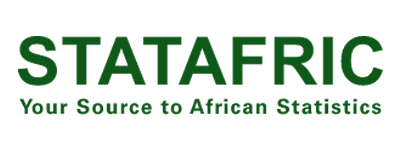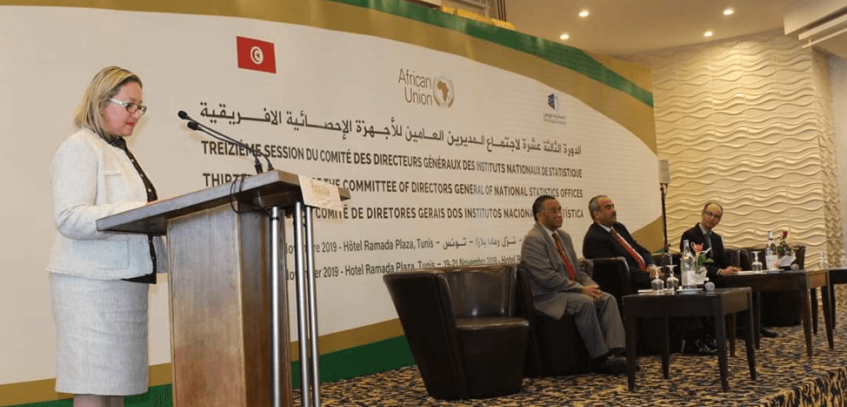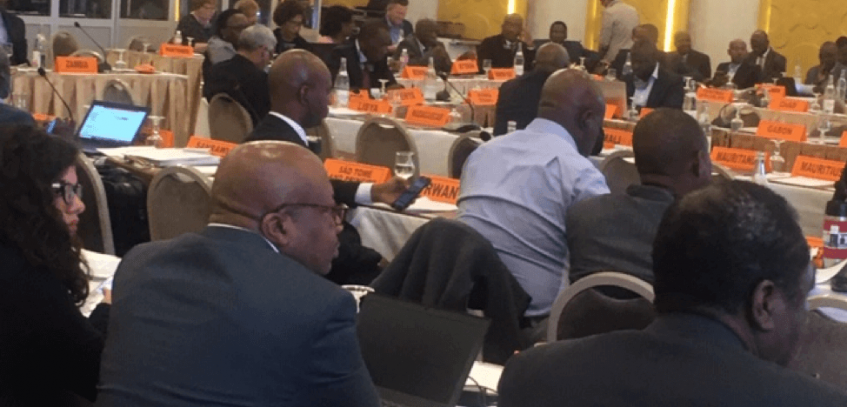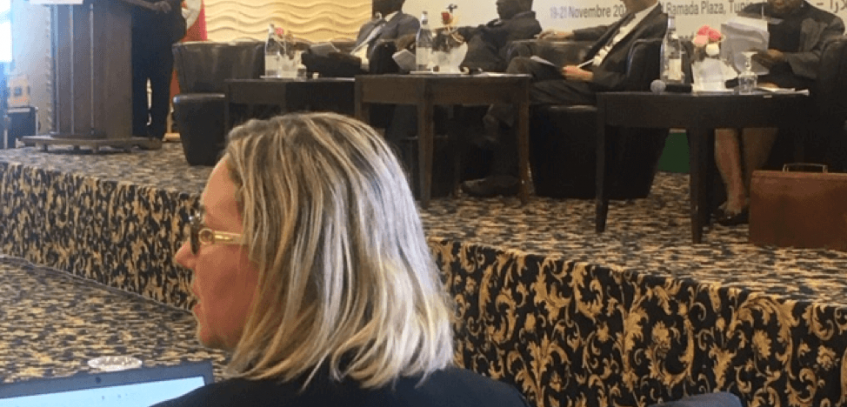Tunis, Tunisia 21 November 2019 – The Thirteen Annual Session of the African Union Committee of Directors General of the National Statistics Offices (CoDGs) which started on 19 November 2019 in Tunis under the theme: “The year of refugees, returnees and internally displaced persons: Towards durable solutions to forced displacement in Africa” , ended on 21 November 2019 with the following recommendations:
AU Member States should be encouraged to consider collecting information on refugees and stateless population as part of their Population and Housing Censuses. The meeting invited African Union (AU) Member States to take all necessary actions to participate in the 2020 round of population censuses (2015-2024 decade), while requesting the AU Commission, the Economic Commission for Africa (ECA) and the African Development Bank (AfDB) to strongly support the 2020 round of population censuses by providing technical and financial supports to AU Member States, especially post-conflict countries to carry out their PHC every 10-year interval as recommended.
The meeting mandated Kenya to act as ambassador of the CoDGs in promoting the use of mobile technology during mapping and enumeration of the population census. They invited AU Member States to support the International recommendations on refugee Statistics (IRRS) and the international recommendations on internally displaced persons Statistics (IRIS) and the compilers’ manual during their endorsement by the UNSC in March 2020.
On the progress regarding the implementation of SHaSA 2, the meeting invited SHaSA 2 Executive Committee to organize its meetings using conference call when funding is not available for convening face-to-face meetings, while encouraging AU Member States to establish South-South cooperation for sharing experience. They requested AUC, AfDB, ACBF and ECA to strengthen the working groups on SHaSA for the implementation of SHaSA 2.
On Civil Registration and Vital Statistics (CRVS) in Africa which is aimed at eliminating scandal of invisibility on the African continent, the meeting encouraged AU Member States with the support of Pan African organizations and other partners to implement the 2017-2026-decade agenda for repositioning civil registration and vital Statistics (CRVS) in Africa, as well as strengthen the collaboration between national civil registration offices, national statistical offices, health, and legal identity management. They encouraged AU Member States to strengthen budget allocation for CRVS and identity management system to improve civil registration records and use them to annually publish quality vital statistics.
On External Sector statistics—External trade statistics and Balance of payments called on the AUC to finalize AFRICATRADE, the trade statistics database, and make it available on line to users. They encouraged the AU Member States that have not yet conducted surveys on Informal Cross Border Trade to do so with the support of Pan African Organizations and other partners.
On Sustainable Development: Agenda 2063 & Agenda 2030 monitoring and evaluation, the meeting requested the AUC to expedite the baseline assessment survey to identify gaps in data for monitoring Agenda 2063/Agenda 2030.
On National Accounts and Price Statistics—Implementation of the 2008 SNA, AU Member States were requested to regularly conduct economic censuses and put in place business registers for national accounts compilation purposes. The meeting urged the partners to provide technical assistance to AU Member States in improving their price statistics for better estimation of volume measure of the Gross domestic product (GDP).
On Governance, Peace and Security Statistics, AU Member States with the support of RECs and partners were requested to regularly conduct and institutionalize GPS surveys (either as a stand-alone survey or as a module attached to a larger socio-economic household survey) and include them in their National Statistical Development Strategies (NSDS). They called on the AUC and other Pan African organizations to support AU Member States in organizing trainings for the rigorous implementation of the GPS survey (training of trainers for the survey supervisors and interviewers).
On Migration—Regular and irregular migration Statistics, the meeting encouraged AU Member States to achieve improved production and use of migration statistics derived from administrative records and thus avoid expensive direct statistical surveys. They invited the AUC in collaboration with other partners to develop a common methodology and data collection tools for AU Member States to regularly conduct labor migration surveys every 5 years, and requested the AUC to finalize the methodology and data collection tools on irregular migration following the pilot exercise and make them available to AU Member States for implementation.
On Peer reviews of national statistical systems, the meeting adopted the revised manual on peer review of African national statistical system and invited all partners to use it for supporting AU Member States for peer review. They called on the peer reviewed countries to implement the monitoring and evaluation tool and share the outcomes with the AUC. They also called upon Member States to translate peer review recommendations into a roadmap and actions plans for improvements of the national statistical systems. They requested the AUC to prepare and submit to the next STC on Finance, Monetary Affairs, Economic Planning and Integration a draft decision inviting AU Member States to provide sufficient funding for the implementation of the peer reviews recommendations.
Regarding the revenue statistics in Africa, Member States were encouraged to volunteer in participating in the compilation of the revenue statistics yearbook. On the other hand, they were urged to adopt the Status of African Youth Report indicators as core indicators for measuring youth development. Member States were also requested to regularly collect data within the AU-defined age bracket for youth between the ages of 15-35 and to annually provide them to the AUC for compiling the Status of African Youth Report. The meeting requested the AUC, the Commonwealth Secretariat, the Population Reference Bureau, UNICEF, DFID and other development partners to develop advocacy tools such as the youth development index, policy briefs and guidance notes to support Member States in improving youth development according to the African Plan of Action for Youth Empowerment.
On the African Symposium on Statistical Development (ASSD), the meeting called upon the CoDGs, Stat Com Africa Bureau, CoDGs, Ethiopia, South Africa, Rwanda, Morocco, Sierra Leone, Equatorial Guinea, AUC, AfDB and UNECA to discuss and find ways for institutionalizing of the ASSD and provide it with an action plan and sufficient funding.
In the area of Coordination and partnerships with the African Statistical System, the meeting invited the Pan African Organizations to advocate for AU Member States to put in place legal framework, digital protection and personnel data: Privacy (i.e. through NSDS and beyond) to stimulate use of Big data. They encouraged AU Member States to consider using the methodology developed by Oxford Poverty and Human development on the Multidimensional Poverty measure.
Under the Statistical Program of African Partners RECs were requested to coordinate and harmonize their work programs to avoid duplication and ensure their effective implementation. They requested the AUC, AfDB, ECA, ACBF and RECs to strengthen their cooperation and collaboration. They also invited the schools of statistics and training centers to continue aligning their statistical training programs and curriculums to Member States’ needs, regional and continental development agendas and emerging statistical issues.
The meeting finally mandated the Bureau of the CoDGs to represent Africa at the UN Statistics Commission in New York, speak with one voice and ensure that the Africa’s common positions are taken into account in the deliberations.
Worth noting that, South Africa will host the 14th session of the CoDGs to be held in 2020.
For More information, please contact:
Mrs. Leila Ben Ali, Head of Statistics Division, Department of Economic Affairs, AUC. Tel: +251911864903, Email: leilabenali@yahoo.fr
Media Queries contact:
Esther Azaa Tankou, Head of Information, Directorate of Information and Communication, African Union Commission Tel: +251 911361185, E-mail: yamboue@africa-union.org / esthertankou@yahoo.com
For further information contact
Directorate of Information and Communication | African Union Commission I E-mail: dic@africa-union.org I Web Site: www.au.int I Addis Ababa | Ethiopia














